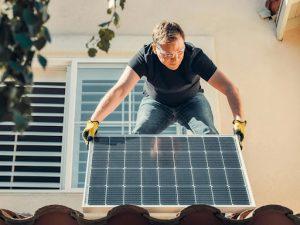 Whether you are hunting for a new home or trying to add some features to your current one, an energy-efficient house can offer sustainability and cost-efficiency. In many homes, major features like appliances and construction can impact their efficiency negatively. Before you undergo this eco-friendly project, consider the size and shape of your residence. A large home will need more materials to stay heated or cool, and this may come at an additional cost. Also, hire a home inspector to help you decipher what you are getting if you are renting. That said, here are some major ways to make your home energy-efficient.
Whether you are hunting for a new home or trying to add some features to your current one, an energy-efficient house can offer sustainability and cost-efficiency. In many homes, major features like appliances and construction can impact their efficiency negatively. Before you undergo this eco-friendly project, consider the size and shape of your residence. A large home will need more materials to stay heated or cool, and this may come at an additional cost. Also, hire a home inspector to help you decipher what you are getting if you are renting. That said, here are some major ways to make your home energy-efficient.
- Install solar panels
Solar panels have been around for some time, and they continue to offer great benefits to homeowners. If the high electricity cost and unstable power supply are causing problems for you, consider purchasing solar panels for your home. They can reduce your carbon footprint and save a lot of money. Solar panels decrease your reliance on grid-based electricity and allow you to produce electricity directly from the sun. This ensures a year-round supply of power, efficiency, and savings. Though your initial cost for buying and installing the panels might be expensive, it is a one-time investment. They can last for a long period, and they are durable as well. They also require little maintenance. Before you buy, it is essential to examine your roof. If it has ten years left, replace it before installing the panels. Hire a professional and ensure you have the right permits from your town or city to avoid problems with the authorities.
- Invest in blanket insulation
Another solution to ensure the energy efficiency of your home is blanket insulation, as it keep your house comfortable all year and lower noise transfer in different rooms. It also protects your household by providing great fire resistance. Some blanket insulation are moisture-resistant and they help to prevent mold or mildew growth. When it comes to creating an efficient home, blanket insulation is quite popular due to its ability to be applied differently and how easy it is to install. To begin, get an energy audit to determine where the leakages are and uncover other issues. Be informed about the various types of insulation and figure out which is best for your location or home. Whether you are on a tight budget or not, get the work professionally done by insulation companies. You can begin with the attic and exterior walls and seal additional gaps.
- Open your windows
If you live in a region with mild winters and hot summers, opening your windows in the other seasons can impact your energy bills greatly. If you don’t have enough windows in your home, consider installing them to allow fresh air and natural lighting into your house. Add accessories like adjustable curtains or shades to help control the amount of light and heat entering your room. Ensure your windows are sealed properly to prevent air leakage when you have your air-conditioner and heater on. You can also integrate smart home systems to help open and close the windows at the right time and conserve energy.